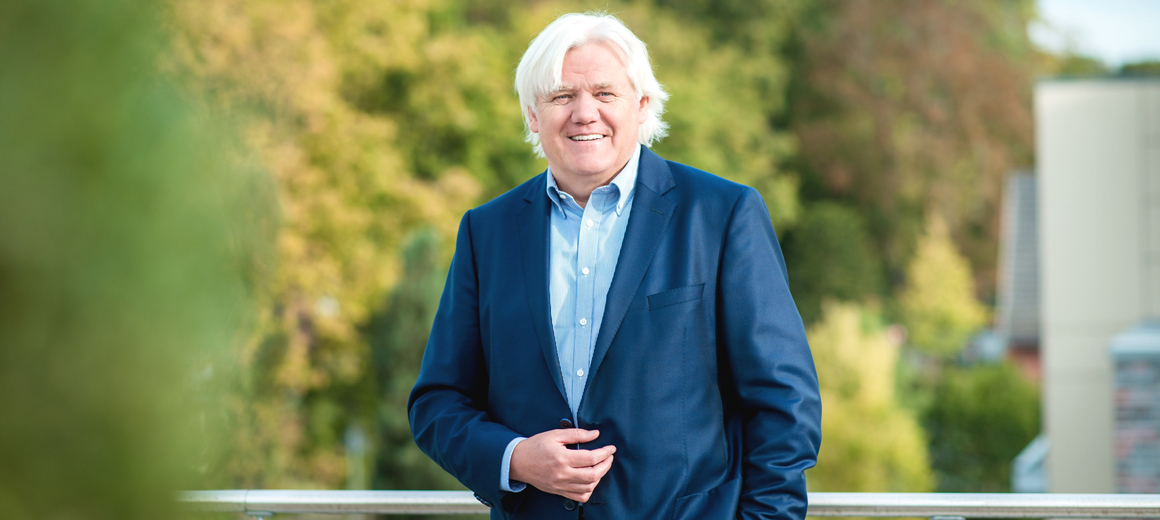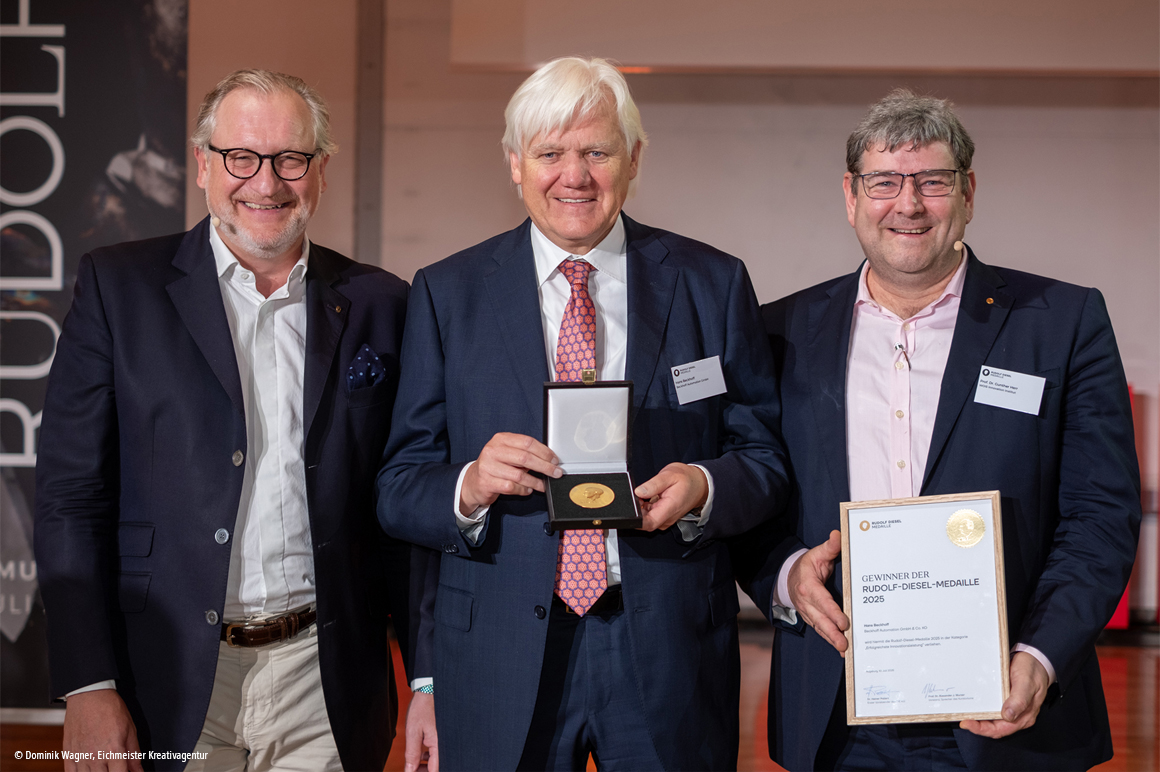

Portrait: Europe’s oldest innovation award has been awarded to Hans Beckhoff.
Published in VDI Nachrichten 12/20025, July 25, 2025, VDI Verlag, Germany
Author: Martin Ciupek, editor-in-chief of the German trade journal VDI Nachrichten, VDI Verlag
As of this month, Hans Beckhoff – Managing Director of the Verl-based automation technology provider that bears his name – is officially one of the most important innovators in Germany. On July 10, 2025, the German Institute for Inventions (Deutsche Institut für Erfindungswesen) awarded him the Rudolf Diesel Medal alongside Professor Wolfgang Wahlster, from the German Research Center for Artificial Intelligence (DFKI). The history of Europe’s oldest innovation award includes names such as Carl Friedrich Benz, Wernher von Braun, Hans Viessmann, and Artur Fischer.
As a child, Hans Beckhoff enjoyed reading comics about the Disney character Gyro Gear loose and, later on, science fiction stories. Grand visions of technology shaped and fascinated him early on. As a six-year-old, he helped out in the electrical installation company run by his father, who took him to construction sites on public holidays. “Back then, I was allowed to turn the crank inductor, a generator that produced test voltages for ground faults,” he recalls.
As a teenager, he got involved in radio and television technology and started tinkering with electronics as a hobby. After leaving school in 1972, he studied physics and graduated in 1980. When his father died in 1981, he and his three siblings took over the family business.

Hans Beckhoff founded his own branch of the business under the name Beckhoff Industrie-Elektronik. In his parents’ garage, he and a handful of employees built the first controls for local machine builders on an old kitchen table. Today, 45 years later, his company trades as Beckhoff Automation GmbH & Co. KG and employs over 5,000 people worldwide. This makes Beckhoff Automation the largest member of the Beckhoff family group. His siblings run the companies responsible for electrical installation, as well as technology and design.
The young physicist was an early adopter of the principle of using improved versions of commercial PCs (personal computers) as industrial PCs (IPCs) for automation technology. “We supplied the first system back in 1986. At that time, the operating system was still MS-DOS,” reports Hans Beckhoff. The point was to replace hardware-based automation with software-based automation.
“That allowed us to make the PC suitable for control purposes – and we didn’t even have any direct contact with Microsoft management back then,” Hans Beckhoff continues. As a result, Beckhoff Automation was able to offer IT and OT functionality directly on the machine, a real revolution for the time. Today, the Beckhoff PC-based control architecture is widely recognized as an extremely powerful foundation for advanced automation.
When it comes to his company’s biggest innovations, the energetic Managing Director doesn’t have to think twice: “Our EtherCAT is certainly the most widespread in the world.” This Ethernet fieldbus technology has developed into a de facto standard for fast control technology, with over 8,000 members worldwide in the development community (the EtherCAT Technology Group). “EtherCAT applications can be found almost anywhere that is not dominated by large corporations such as Siemens and Rockwell,” says Beckhoff, delighted with the technology’s development. The physicist also considers it a real achievement that no version changes have been necessary since the first EtherCAT incarnation in 2003 – something that cannot be said of many other protocols. “Because we already had a lot of experience, we were immediately able to develop the right technology with a leading edge over the long term. It has won over engineers worldwide,” says Beckhoff. Of his company’s more recent innovations, Hans Beckhoff highlights its control cabinet-free automation: “With our MX-System, we have expanded on the bus terminal, incorporating not only low-voltage signals, but also power inputs/outputs into a pluggable system.”
A family man, Beckhoff still today has little time for typical leisure pursuits – aside from his passion for reading scientific textbooks. As a father to daughter Frederike and son Johannes, he considers it a “great stroke of luck” that his offspring want to take on the task of running the business. However, he plays down his own image as a role model, instead paying tribute to his wife – a doctor of neurology and psychiatry who, Beckhoff says, was the driving force behind their children’s upbringing.